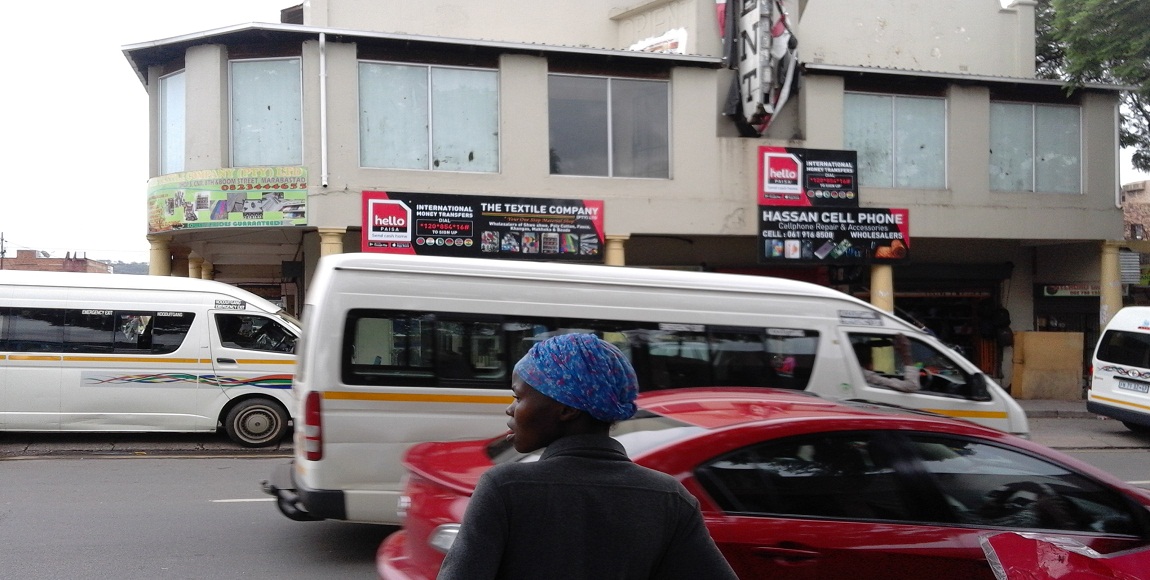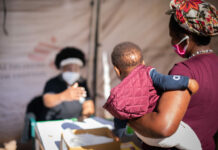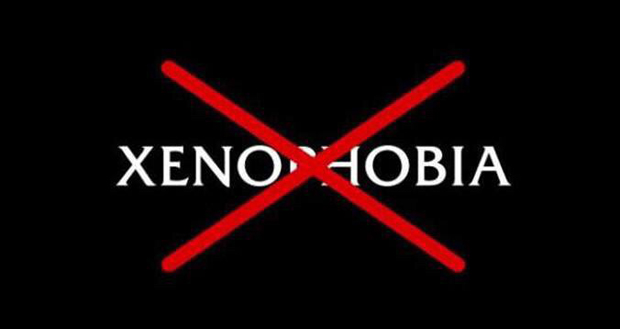Xenophobia: an intense or irrational dislike or fear of people from other countries.
That’s how the resurgence of violent attacks, directed at foreign nationals living in townships across Gauteng, is being termed. Residents perpetrating these attacks believe that they are merely getting rid of criminals in their communities who are getting their sons hooked on drugs and turning their daughters into prostitutes.
This “movement” was started by the residents of Rosettenville. They believe the main perpetrators are the immigrants living in their community. Early in February, the protesters looted and partially set alight what they considered to be brothels and drug dens. The three residences that were targeted belonged to Nigerian immigrants.
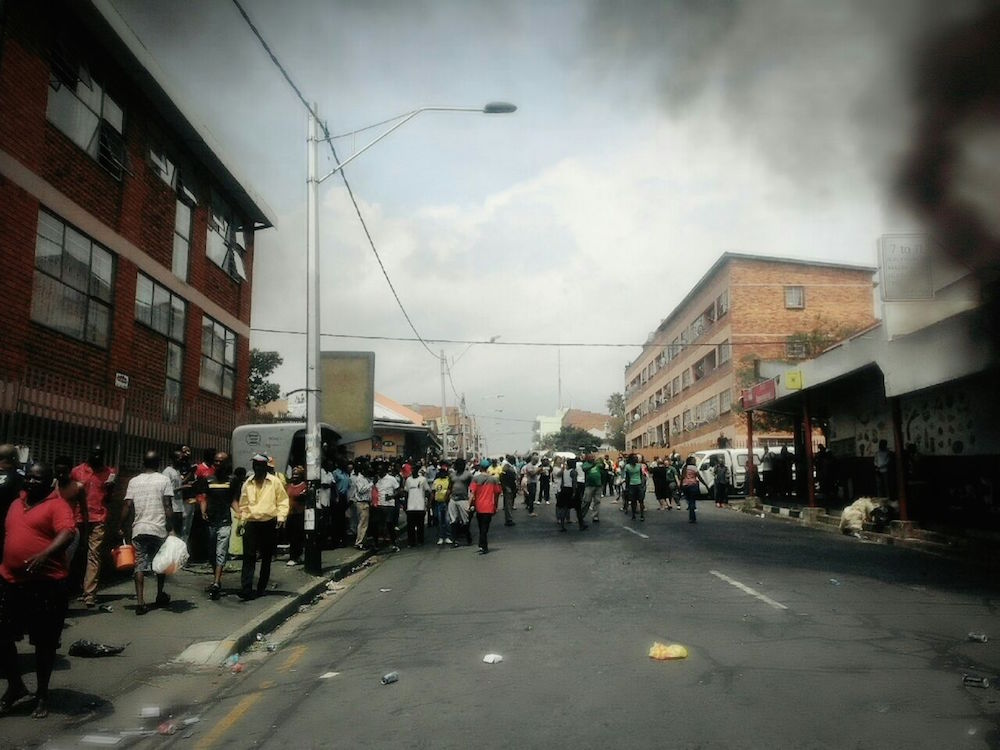
It then spread to other areas in Pretoria West, taking on a more violent tone with anti-immigrant sentiments. Now, a group called the Mamelodi Concerned Residents (MCR) are mobilising against immigrants. The organisation plans to march on Friday, 24 February in the Pretoria CBD. Magoka Lekganyane, an organiser of the march, emphasised that the march was not xenophobic and that they are merely trying to get illegal immigrants out of South Africa. “That’s what we’re stressing if you are illegal you need to go home.”
Lekganyane is frustrated by what he perceives to be a lack of action against the unfettered drug dealing and sex trafficking that he sees happening in Pretoria, allegedly perpetrated by immigrants.
“I mean Nigerians, they’re the ones mostly in Sunnyside. It’s mostly Nigerians and Congolese. Young guys, who are addicted to nyaope, [are] telling [us], ‘We’re getting these drugs from this group. We get these drugs from Tanzanians, we get these drugs from these people.”
He believes that South Africans have been quiet for too long about this. “And what should I do, must I always laugh and say ‘we are Africans? I mean how is that helping us? Everyone knows who is doing that.”
The march is set to start at the Old Putco Depot in Marabastad, a thriving (although underdeveloped) economic hub with shops mostly owned by immigrants. The march will head to the Department of Home Affairs where they’ll hand over a memorandum of demands. “We want the Department of Home Affairs to stop giving people asylum. That is stated in the memorandum,” Lekganyane explained. He says that young nyaope addicts who claim to get their drugs from immigrants also plan to join the march.
Asked about the potential of the march escalating into a violent xenophobic brawl, he emphasised that he does not align himself with the people committing those acts. “The idea is… we are not xenophobic, and any person who is there coming with violent intent should not be part of it. We are against xenophobia. We don’t like any attacks on anyone.â€
Initially, the Tshwane Metro Police Department (TMPD) had denied the MCR permission to march as they were concerned it would incite violence against immigrants. But on Wednesday, the TMPD reviewed the decision and granted them permission to march. According to Lekganyane, the TMPD reversed the decision because they saw that the march could be hijacked by violent protesters, so they agreed that officers would be present at the march.
Senior superintendent Isaac Mahamba from the TMPD confirmed to The Daily Vox that the march would take place with police presence. When asked about the potential for violence, he said “We don’t expect violence but we don’t rule out the eventuality and we will be ready”.
The communications coordinator of the South African Human Rights Commission (SAHRC), Gushwell Brooks urges authorities to put measures in place to protect immigrants and ensure that no further xenophobic violence happens.
According to a 36-year-old Nigerian shop owner in Marabastad, none of the shop owners will be doing business on Friday. His reason – “No one will be here to be killed.” The shop owner, who does not want to be named, has been in South Africa for three years. He left Nigeria because the infrastructure and basic services are severely inadequate.
Taxi driver Thapelo, 34, says that he will be joining the march on Friday. His intentions, however, don’t align with those of MCR. “On the first [of March], we don’t want to see any foreigners here,†he said, pointing at Marabastad. If he does see any immigrants around he’ll attack them with “is’lesheni†(a machete).
However, some South Africans are prepared to fight with their fellow Africans. Sello Ndaba, 36, from Pretoria is angered by the actions of South Africans and their sentiments about immigrants.
“[T]hose criminals committing those xenophobic attacks target them because they know, they’ll break into their shops and that’s where they benefit. That’s why they promote it and it’s totally wrong,†he says.
It’s hard not to think of MCR’s goals as xenophobic, not because of the march but because of the ideas they have towards immigrants, especially Nigerians and Zimbabweans – whether here illegally or not.
“I’m not going to say all Nigerians but most of Nigerians. I’ll estimate that 98% [of them are bad]. I’m yet to see somebody that I’ll say is a good person from Nigeria. Even their president called them criminals.”
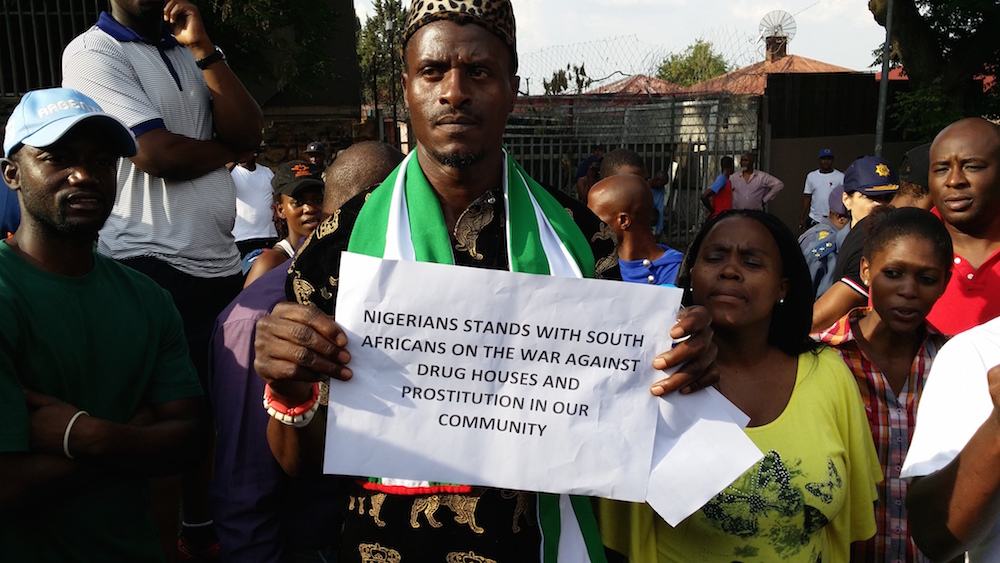
He believes that trafficking humans is something that’s been happening in them “since the 1600s”. This sentiment was also held by Thapelo. “There are South Africans [doing this] but they get that spirit from them. This spirit came with them. So now South Africans are there because they’re struggling and adopting this way of thinking.”
This is indeed very telling about the rhetoric xenophobic South Africans are spreading – that immigrants are inherently bad and they pass on this philosophy to the youth of this country because they don’t know what else to do.
Thabane Sbana, 30, from Zimbabwe believes that this idea some South Africans hold is just an excuse. “That thing is an excuse that people who don’t want to work and just want to wander around and take advantage [say].”
The recent spate of xenophobic attacks that have been happening across Gauteng can be seen as a symptom of the socio-economic climate poor South Africans are living in. In township communities, competition for resources is tough and people from other countries are perceived as the main competitors.
Because immigrants are willing to work for a pittance, they are seen as taking jobs away from South Africans. “[A]round 3 million Zimbabweans and other foreign nationals who are less skilled come into South Africa. We have not attracted people who are here to help us,” Lekganyane says.
Desperate and disillusioned, these South Africans are seeing immigrants, many of whom have become retail providers in township areas, succeed while they lag behind. They’re lumping those who are making an honest living with the gangsters who are prospering through the destruction of their community.
Violently targeting a certain group in society on generalisations based on the actions of a few is not only discriminatory, but unconstitutional. “The Commission re-iterates that an attack under the guise of crime prevention, aimed at a particular vulnerable group, on the basis of their birth outside of South Africa is an infringement of the rights within our Constitution,” Brooks says.
Who they need to be enacting “justice” on are the institutions set up to prevent drug and human trafficking, illegal border crossings, and increasing unemployment. Lekganyane encourages people to voice their issues through the “democratic institutions”. But trust in those has been eroded.
Editors’ note: this story has been updated with comment from the TMPD.

